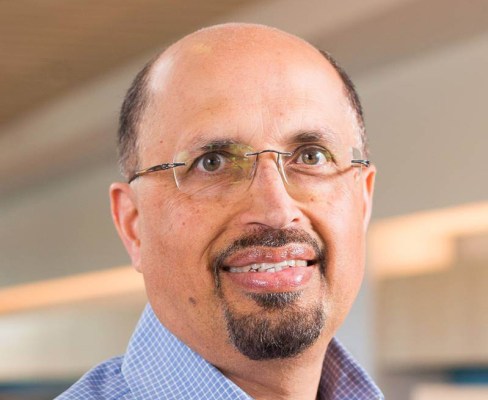Trinity Ventures, a 29-year-old, Sand Hill Road Firm whose recent hits include the IPOs of Zulily, New Relic and TubeMogul — not to mention the still-private but highly valued startup Docker — has closed its 12th fund with $400 million in capital.
We were in touch yesterday with Ajay Chopra, a general partner at the firm for nearly the last decade, to ask what the fundraising process was like at a time when valuations are high — as are concerns about exits. Our exchange has been edited lightly for length.
TC: You raised your last fund in 2012 with $325 million. This fund is considerably larger.
AC: We’re writing slightly larger checks for the same ownership. With valuations higher, it takes a larger check to get the same ownership in a similarly sized portfolio. But our mission and strategy for achieving it have stayed the same: invest early in world-class teams going after big ideas, support them through good times and bad, and build meaningful businesses together.
TC: How has the firm’s team changed since that last fund was closed?
AC: Since then, we’ve added six people to our staff. Four of the new additions are women, and two of those women are partners. We’re very glad that with these additions, we’re probably the most diverse firm of our size.
The [general partners are] the same except for Noel Fenton, who founded the firm almost 30 years ago and is taking a well-deserved step back.
TC: What was fundraising like? What did your investors want most to see? Did you sense nervousness on their part over exits, or a general lack of them?
AC: Besides good performance, they want to see funds where partners have worked well together over several investment cycles with consistent investment style over several funds. They’re definitely concerned about current startup valuations but also understand that from a return standpoint, it’s primarily an issue for late-stage investors.
TC: How are you dealing with the slowdown in IPOs?
AC: An IPO is a key fundraising milestone in a company’s life, not an endpoint, and it isn’t prudent to try to predict or depend on specific IPO windows.
TC: Have you taken advantage of the secondary market?
AC: Our approach is to partner with entrepreneurs over the entire journey of the company from inception to liquidity and beyond. We don’t think in terms of liquidating our investments independent of the company and other stakeholders.
TC: What do you make of the stay-private-longer trend? Are companies missing their window to go public? Have they already?
AC: Great companies always have the option to go public. It’s a fact of life that more companies today have or choose to have longer private lifespans, but the healthy outcome of this is that public markets are more discerning than in prior bubble periods. The IPO is always available for companies that are truly ready.
I would say that many private companies today with lofty valuations aren’t ready for public markets. That’s not necessarily bad. They may have much better public reception down the road when they are.
TC: What new technologies have you the most excited right now?
AC: We feel that we are still in the early innings of a secular trend to mobile and cloud-based software and services — up and down the stack — both on consumer and enterprise side. And we’ve invested in some disrupters in this category, including infrastructure companies such as Docker and InfluxDB, and apps, such as Gobble, Turo, and Zirx that are disrupting the food, car rental and parking verticals, respectively.
We’re also spending a lot of time thinking about the future of financial services, education and the labor market, and the companies those markets will need. And we’re seeing major new technology platform categories emerge, such as VR, self-driving cars and drones. The applications these platforms spawn and the technology innovation they unleash will create a whole new set of investment opportunities.
Standing back from these core technologies, I’m really excited about our recent investment in Bulletproof. It’s building a fresh new brand for health conscious bio hackers who are fanatics about their wellness and, by the way, BulletProof makes damn good coffee.
TC: Are you still running your incubation space, Dolores Labs, or has that experiment been shuttered?
AC: We closed Dolores Labs a few months ago but we like being in San Francisco and close to the entrepreneurs there, so we are setting up a new expanded presence there. We’re excited to tell you more about that very soon.
